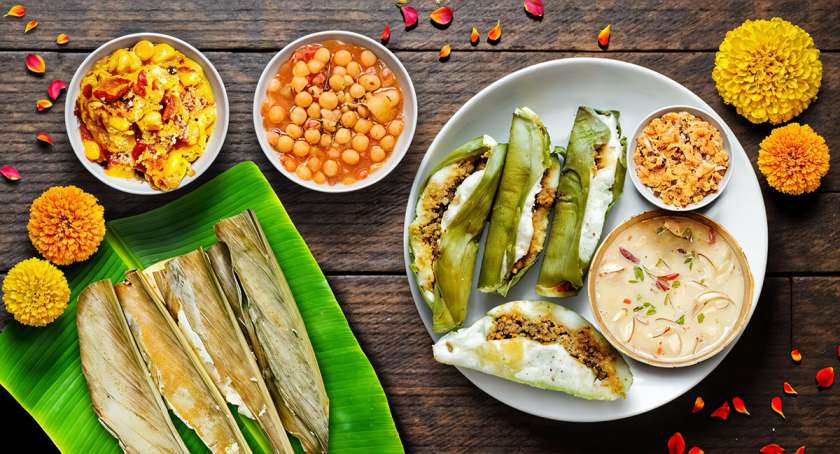Prathamastami – The Odia Festival Honoring the Eldest Child
Prathamastami is a unique and significant festival celebrated with great devotion in the Indian state of Odisha. Families dedicate it to the eldest child’s well-being, prosperity, and longevity. Observed on the eighth day (Ashtami) of the Krishna Paksha in Margashirsha (November-December), this festival carries deep-rooted cultural, social, and religious significance. Families across Odisha come together on this auspicious day to perform special rituals and prepare traditional dishes to honor their firstborn. The festival reinforces familial bonds and highlights the household’s values of responsibility, love, and respect.
Historical and Cultural Significance
People in Odisha have celebrated Prathamastami for centuries, and its origins are deeply intertwined with Hindu traditions. The festival underscores the importance of the eldest child, whom families consider the pillar of the family and the one who will shoulder future responsibilities. Families perform rituals on this day to bless the child with a long life, good health, and prosperity.
According to folklore, ancient Hindu mythology traces the origins of Prathamastami. People believe that Yashoda, the foster mother of Lord Krishna and Balarama, initiated this festival to express her love and concern for her eldest son. This historical perspective strengthens the cultural relevance of the festival among Odias and makes it a widely celebrated occasion.
Prathamastami also holds agricultural significance. Prathamastami falls after harvesting Kharif crops, so people consider it an occasion to express gratitude to the divine forces for a bountiful harvest. This aligns with Odisha’s agrarian lifestyle, where communities link many festivals to seasonal changes and agricultural cycles.
Rituals and Traditions
Families celebrate Prathamastami with elaborate rituals and traditions, all of which honor the eldest child. The day begins with an early morning bath, signifying purification. After this, the child is dressed in new clothes and adorned with chandan (sandalwood) paste on the forehead, a symbol of divine blessing and protection.
The main rituals include:
- Worship of Lord Ganesha and Goddess Shashti: The family’s mother offers a special puja to Goddess Shashti, who protects children, and Lord Ganesha, who removes impediments. Families also pray for the eldest child’s well-being, prosperity, and longevity.
- Offering of Sacred Items: Devotees present traditional offerings such as betel leaves, coconut, turmeric, new clothes, and sweets to the deities. Later, they give these items to the child as a divine blessing.
- Lighting of the Deepam (Oil Lamp): As part of the rituals, devotees light a deepam (oil lamp). This represents how guidance shapes the child’s future pursuits, wisdom illuminates the path, and protection shields them from evil powers.
- Traditional Prayers Recited: To invoke divine favors for the oldest child, the family members recite prayer and unique melodies. In many families, the child is blessed by the elders, which emphasizes the value of honoring family customs.
- Elderly Blessings and Gifts: After completing the puja, the grandparents or other elderly family members bless the child and present gifts. This symbolizes the transfer of wisdom and responsibilities from one generation to the next.
Special Delicacies Prepared
No Indian festival is complete without a feast, and Prathamastami is no exception. The festival’s highlight is the preparation of Enduri Pitha, a steamed rice cake made with rice flour, jaggery, coconut, and black gram. This dish, which is steamed while wrapped in turmeric leaves, is known for its unique aroma and flavor. Turmeric leaves add a unique flavor and represent auspiciousness and purity.
Apart from Enduri Pitha, other traditional delicacies prepared during Prathamastami include:
- Dalma: A healthy dish of lentils and vegetables tempered with ghee and cumin, representing sustenance and well-being.
- Kanika: A fragrant and mildly sweet rice dish cooked with ghee, sugar, and dry fruits, often considered a festive delicacy.
- Manda Pitha: Another variety of steamed rice cake, often filled with coconut and jaggery, showcasing the rich culinary heritage of Odisha.
- Khiri (Rice Pudding): A popular dessert made with rice, milk, sugar, and cardamom, signifying prosperity and sweetness in relationships.
These dishes hold religious significance and reflect the culinary traditions passed down through generations in Odia households. The combination of flavors and ingredients used in these dishes aligns with the seasonal availability of fresh produce, reinforcing the connection between food and nature.
Symbolism of the Festival
Prathamastami is more than just a religious observance; it carries deep symbolic meaning. The festival serves as a reminder of the eldest child’s responsibilities in the family. In many Odia households, families expect the firstborn to take on leadership roles, uphold family traditions, and support younger siblings. The rituals and blessings of Prathamastami instill this sense of duty and respect in the child from an early age.
The festival also emphasizes family bonding. Family members coming together to celebrate, cook, and offer prayers strengthens familial ties. The elders blessing the child signifies the transfer of wisdom and values from one generation to another, fostering a strong cultural identity.
Additionally, using turmeric leaves for steaming Enduri Pitha symbolizes purification and protection against negative energies. The deepam’s illumination is a symbol of wisdom and the presence of God in one’s life.
Final Thoughts
Prathamastami is a festival that blends tradition, devotion, and family values. It highlights the importance of the eldest child in the family while also fostering love, respect, and gratitude among family members. Through its rich history, meaningful rituals, and delectable cuisine, Prathamastami continues to be a cherished festival in Odisha.
It serves as a reminder of Odisha’s rich cultural legacy as generations commemorate this important day. Beyond the religious aspect, the festival strengthens the bond between parents and their firstborn, reinforcing values of responsibility and familial love. Prathamastami is an essential part of Odisha’s rich cultural fabric because of its distinctive customs, symbolic meaning, and lovely offerings, guaranteeing that families will continue to carry on the blessings of love, prosperity, and harmony from one generation to the next.


